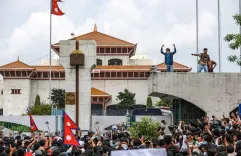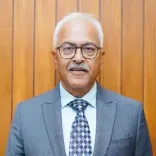Why is the SC Reviewing the Plea Against Two-Shift NEET PG 2025 Exam?

Synopsis
Key Takeaways
- Supreme Court to review NEET PG 2025 petition.
- UDF challenges two-shift exam format.
- Petition argues for fair evaluation standards.
- Concerns raised over transparency of normalization methods.
- Potential impact on future medical education practices.
New Delhi, May 5 (NationPress) The Supreme Court has decided to review a petition lodged by the United Doctors Front (UDF) that contests the National Board of Examinations (NBE) plan to hold the NEET PG 2025 examination in two shifts.
The petition requests that the exam be conducted in a single, uniform session nationwide.
While issuing a notice, a bench consisting of Justices B.R. Gavai and K.V. Viswanathan called for responses from the Centre, NBE, and the National Medical Commission (NMC), scheduling the case for further hearing next week.
Filed by advocate Satyam Singh Rajput, the plea argues that conducting the NEET PG in two shifts with different question papers results in significant discrepancies in difficulty levels, thereby exposing candidates to unequal evaluation standards.
"This infringes upon Article 14 and Article 21 of the Constitution, which ensure equality before the law and the right to a fair opportunity," it contended.
The petition also criticized the statistical normalization process used by NBE for its lack of transparency, public input, and expert evaluation, claiming that it is based on the inaccurate assumption that the difficulty levels across shifts and candidate abilities are uniform.
It seeks the Supreme Court's intervention to mandate a single session for NEET PG 2025 and additionally requests a temporary stay on the exam slated for June 15.
Several petitions were previously filed regarding the NEET PG 2024, which was also administered in two shifts, questioning the transparency in the examination process.
“The right to pursue postgraduate medical education is integral to the right to livelihood and dignity under Article 21. Employing inconsistent and unverified methods erodes the selection process, leading to the unfair exclusion of deserving candidates," the petition emphasized.
Similar concerns were raised by NEET-PG aspirants regarding the NBE's failure to disclose question papers, answer keys, or candidates' response sheets, along with objections to the introduction of two shifts, the normalization method, and alterations in tie-breaking criteria.





